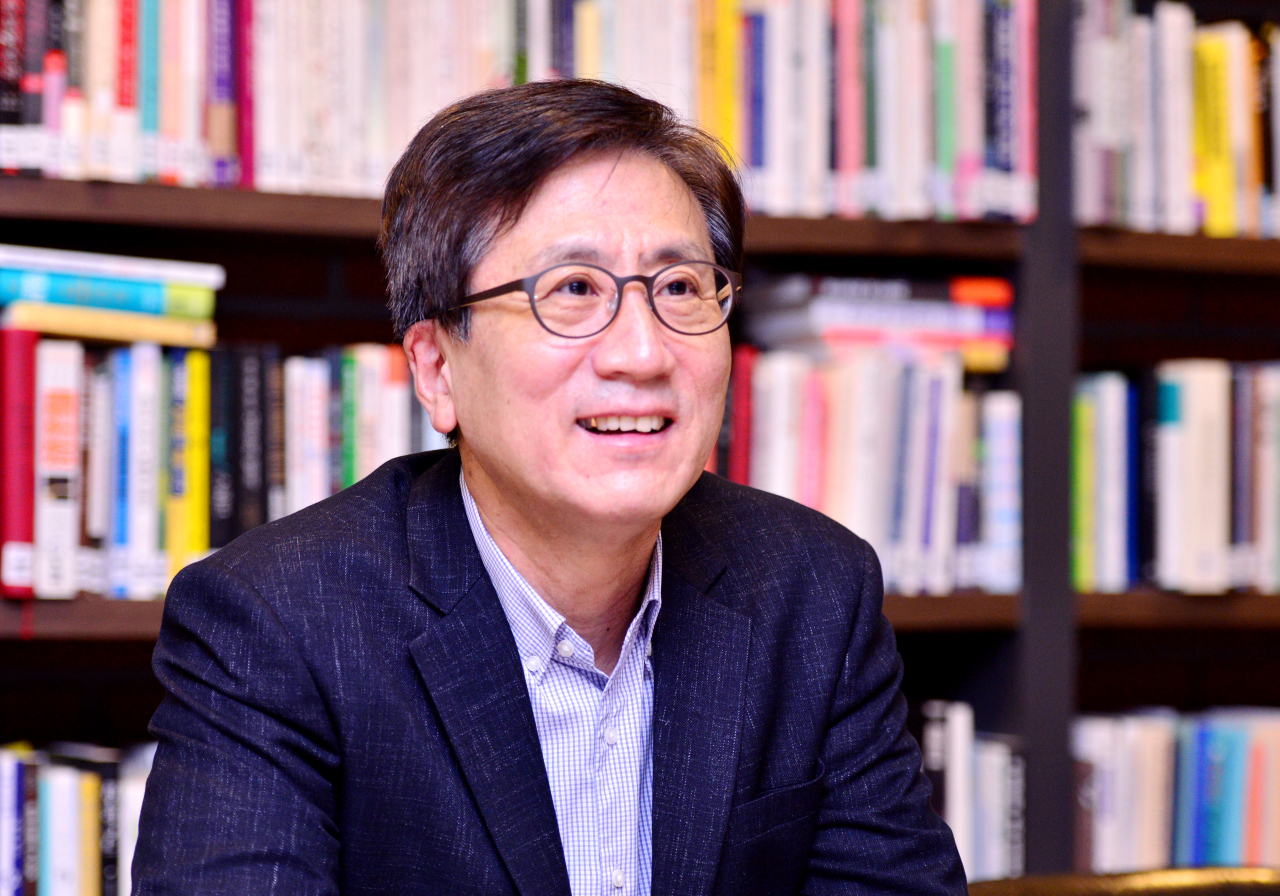[Herald Interview] Openness to internal change needed to complete prosecution reform
By Park Han-naPublished : Dec. 6, 2020 - 16:24

President Moon Jae-in’s initiative to curb the immense power of state prosecutors is now at its halfway point, with related bills having cleared hurdles in the parliament.
For the reform measures to really take root, prosecutors need to step up and play a greater role in driving internal and cultural changes among themselves, said Kim In-hoe, a professor at Inha University Law School in Seoul who is often dubbed the architect of Moon’s prosecution reform scheme,
“Once a law is established, jurists cannot help but follow it. But efforts needed to bring real changes in the field cannot be done by a scholar like me or presidential secretaries. Only prosecutors can do the job,” Kim said in an interview with The Korea Herald at the Herald Corp. building in Yongsan, Seoul, Tuesday.
The country is undergoing a sweeping reform to promote “checks and balances” of powerful organizations, especially the prosecution service, which has been bound by an old judicature system that allowed it to dominate power to investigate and file charges.
But passage of bills will not guarantee successful implementation, the professor said. The prosecution should internalize the purpose of the reform and make action plans, he added.
“They have to make exemplary models and find alternatives for improvement to share the details with other prosecutors. It is hard to say they are prepared to make such efforts, although the implementation will come into effect right next year,” Kim said.
Kim served as a secretary for civil society under the administration of the late President Roh Moo-hyun. He worked for the Judicial Reform Committee under the Supreme Court and the Presidential Advisory Committee for Judicial System Reform.
The reform advocate expressed concerns that consensus is losing its hold among political parties on detailed methods of the prosecution reform after Prosecutor General Yoon Seok-yeol launched a massive investigation into Cho Kuk, the previous justice minister who was embroiled in a scandal involving his family. Cho resigned in October last year 36 days after he took office upon coming under the probe. Some viewed that the prosecution had an ulterior motive behind the probe -- to effectively veto the reformist minister.
“The launch of the investigation showed Yoon and Cho had a very different idea on the prosecution reform. The event invited speculations that the prosecution service tried to strand the reform drive,” he said.
A serious quarrel between the prosecutor chief and Cho’s successor Choo Mi-ae has led to a legal battle and intensified partisanship, making it difficult to keep up the reform momentum.
“Checks and balance (between the Justice Ministry and the prosecutors’ office) is the basic principle, but mutual cooperation is also needed because the institutions work under the same president,” he said.
In January, the National Assembly passed revisions to the criminal procedure act and the prosecution office act to grant police more investigative power so that prosecutors can focus on indictment and cross-examination of cases.
“The revision sets an institutional framework that can prevent arbitrary investigations that violate human rights,” the professor said.
Kim said the new law will reduce the risk of prosecutors presuming a suspect guilty based on prejudice and conducting excessively forceful investigations to get what they had already determined from the testimony and evidence.
“By separating the powers of investigation and prosecution, state prosecutors will no longer be able to govern the country through investigations that are tied to political power,” he said.
The prosecution has often come under public criticism for alleged abuses of its massive investigative power while currying favor with those in power for its own interests.
Politically motivated investigations involving high-ranking government officials and large conglomerate leaders in the past led to calls for the prosecution overhaul, centering on the amendment of the criminal procedure system established in 1954 in the aftermath of the Korean War.
“As the country has been democratized, the law should have developed in accordance. But it has remained until now, although it caused extreme centralization and violation and ignorance of human rights,” he said.
Another of Moon’s flagship reform projects is setting up a separate unit to probe corruption by high-ranking public officials – the Corruption Investigation Office for High-ranking Officials, or CIO.
The National Assembly passed the bill allowing the establishment of the CIO in December last year, but the launch has faced a bumpy road due to resistance from the opposition party.
“Without resolving or punishing major corruption and irregularity crimes that shake society, we cannot deal with the polarization of wealth that erodes social stability. The CIO is a system that could respond to such crimes in the just and right ways regardless of demands from those in political power.”
Kim published a series of books on judicial and prosecutorial reform, including “Criminal Procedure Law” (2018), “Thinking About Judicial Reform” (2018), “The Problem is the Prosecution” (2017), “Moon Jae-in and Kim In-hoe Think About the Prosecution” (2011) and “Why Justice is Hope” (2018). His latest book, “The Future of Ethics” was released in October.
By Park Han-na (hnpark@heraldcorp.com)








![[KH Explains] How should Korea adjust its trade defenses against Chinese EVs?](http://res.heraldm.com/phpwas/restmb_idxmake.php?idx=644&simg=/content/image/2024/04/15/20240415050562_0.jpg&u=20240415144419)











![[Today’s K-pop] Stray Kids to return soon: report](http://res.heraldm.com/phpwas/restmb_idxmake.php?idx=642&simg=/content/image/2024/04/16/20240416050713_0.jpg&u=)